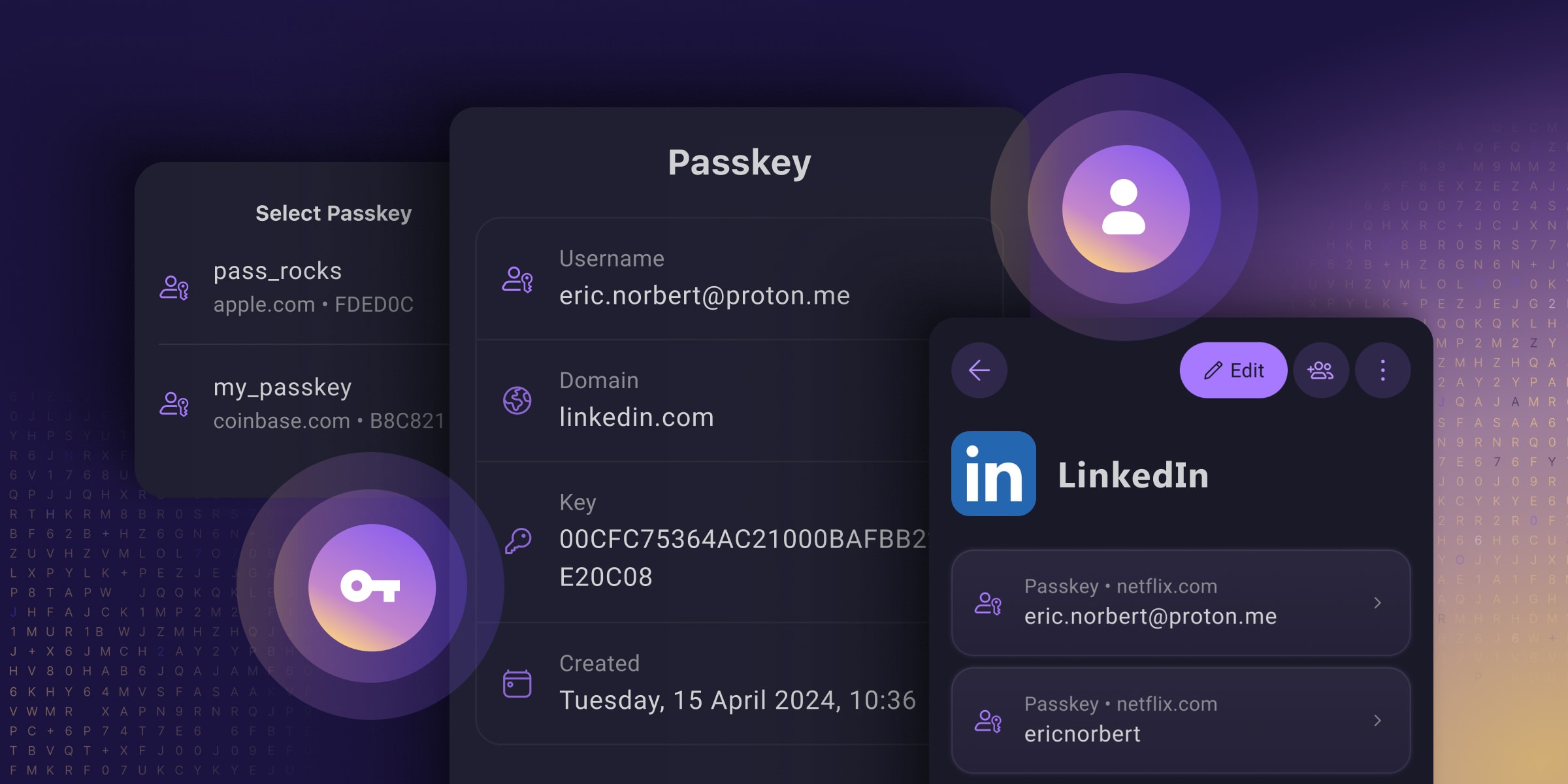Passkeys are an easy and secure alternative to traditional passwords that can help prevent phishing attacks and make your online experience smoother and safer.
Unfortunately, Big Tech’s rollout of this technology prioritized using passkeys to lock people into their walled gardens over providing universal security for everyone (you have to use their platform, which often does not work across all platforms). And many password managers only support passkeys on specific platforms or provide them with paid plans, meaning you only get to reap passkeys’ security benefits if you can afford them.
They’ve reimagined passkeys, helping them reach their full potential as free, universal, and open-source tech. They have made online privacy and security accessible to everyone, regardless of what device you use or your ability to pay.
I’m still a paying customer of Bitwarden as Proton Pass was up to now still not doing everything, but this may make me re-evaluate using Proton Pass as I’m also a paying customer of Proton Pass. It certainly looks like Proton Pass is advancing at quite a pace, and Proton has already built up a good reputation for private e-mail and an excellent VPN client.
Proton is also the ONLY passkey provider that I’ve seen allowing you to store, share, and export passkeys just like you can with passwords!
See https://proton.me/blog/proton-pass-passkeys
#technology #passkeys #security #ProtonPass #opensource



Passkeys are a form of passwordless authentication. You store them in Bitwarden like regular passwords, but when you want to access a site that supports them (e.g. eBay) instead of asking for you password and autofilling or copy pasting it from Bitwarden your Bitwarden pops up and asks you if you want to login and it just happens (if you have multiple passkeys associated with a site you can select which you want to use). That’s it. No password fields which get autofilled and no password in your clipboard (history).
Thanks for the explanation. From the sound of it I’ll probably stick with passwords—i like being able to copy them, cause I’m often signing in to an application, not a website, etc.
That’s a reasonable decision. While passkeys are usually considered much safer than passwords they are not really common. It is mostly the big services (Google, Microsoft, eBay) which have implemented them. Also Bitwarden only supports them on desktop as they are currently working on mobile support. But this will change and as they follow a standard it will be no problem to log into apps with passkeys as the support widens.
Sounds a lot like SSO no?
It is a similar experience, but you don’t need any infrastructure for it. Everything is handled by your device.